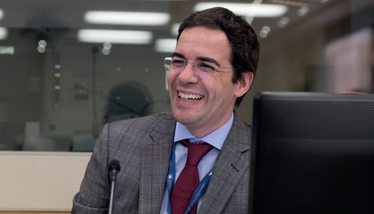Sitting Down With… The Past: Bruno Sepodes
We dive into the archive of 2018 for insight and inspiration – this time with Bruno Sepodes

In light of Bruno Sepodes' recent appointment as the new Chair of the EMA's Committee for Human Medicinal Products, it feels timely to revisit insights from a 2018 interview where he discussed his focus on rare diseases, shared lessons from his work with the EMA, and highlighted his interest in regulatory science.
On rare diseases:
I became a member of COMP in 2008. From a scientific perspective, the world of rare diseases is very much unknown, with so many questions and so few answers. The quest for knowledge is very rewarding, but the big problem is funding; we need to be able to develop proper products. I fell in love with the orphan regulation because of the way it was creating incentives for development – and so genuinely changing public health and patient lives. Between 2008 and 2012, when I became Chair of COMP, my passion really blossomed. We are seeing products based on science that are coming through the doors of the agency for the first time – they are completely innovative and have the potential to create wonderful drugs that represent the first of a new class. We see them first and give manufacturers the incentives to carry on, which is exciting!
On lessons:
The EMA is a unique place and so eye opening in many aspects! Collaborating with EMA gives you a completely different view to working within a national setting. When you are in an academic setting, you are very focused on the lab. Even when you connect to the clinical side and get involved with translational work, the truth is that patients, patient organizations and even the industry are very far-away players. Moving to the regulatory arena – especially the EMA (the brain of the regulatory world in Europe) – allowed me to really understand patients as stakeholders. One of the wonderful things about the EMA is the diversity; not only are you able to meet people from all over Europe, but also from all over the world, such as regulators from the US, Canada, Australia, Taiwan, and elsewhere. The diversity has an incredibly positive impact in terms of what you learn and bring home.
The Medicine Maker Presents:
Enjoying yourself? There's plenty more where that came from! Our weekly Newsletter brings you the most popular stories as they unfold, chosen by our fantastic Editorial team!
On regulatory science:
My interests have naturally shifted from the research setting to regulatory science as I’ve spent more time in regulatory roles. I am interested in understanding how we better develop and organize regulatory tools for understanding new drugs. I am now quite proactive in this area and I have students pursuing masters and PhDs in regulatory sciences, which I believe is incredibly useful for society because it helps bring better and safer medicines to patients.
Associate Editor, The Medicine Maker



















